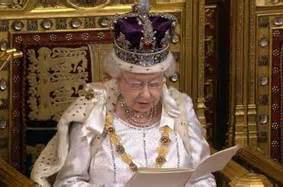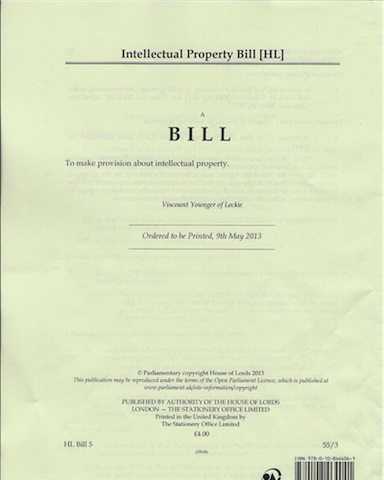Lord C-J says Ministers must ensure the multi-billion pound fashion industry industry is not put at risk
This is a piece I recently did for the House Magazine: ‘From fashion to furniture, Britain’s design sector relies on EU protections, writes Lord Clement-Jones’.
It was notable from her speech at the Mansion House earlier this month that the Prime Minister has woken up to the threat to our broadcasters of exit from the EU through loss of country of origin rules – the rules which have enabled the UK to operate as an international broadcasting hub.
The fact is, however, that this is but one of the many severe threats to our creative industries posed by Brexit.
The Prime Minister also needs to recognise the threat posed by Brexit to the design sector, which includes the fashion industry and furniture lighting and furnishings and many other design areas, from the potential loss of European unregistered design rights for United Kingdom-generated designs.
European design laws protect the individual character of a design, in particular as they relate to shape, texture, contours, lines, colour, ornamentation or materials. UK unregistered design right protects only the shape and configuration of a design.
Recently the Law Society made the news when it revealed that London Fashion Week is under serious threat from Brexit. They said it could lose its status as an event where new clothing creations are unveiled because laws that protect European fashion houses from unauthorised copying may no longer apply in London when Britain leaves the EU next year.
Fashion houses that first reveal an unregistered design on the London catwalk would be at risk from copies going on sale in the EU.
"As the majority in the industry are micro and SME design innovators with less than four employees they are particularly vulnerable to infringement of their designs."
— Lord Clement-Jones
In 2016 the value of UK fashion and textile exports stood at £9.1bn. The fashion industry, through the British Fashion Council, has highlighted the serious consequences for British fashion designers if they lose unregistered EU design rights protection in the other 27 member states. Potentially losing the protection currently available under EU law will leave these UK designers in a disadvantageous position versus their EU competitors.
These are typical but high profile examples of how designers across the board may be forced to launch new designs in EU countries after Brexit.
The potential impact to our economy is massive. UK design and design skills in the UK are currently worth a startling £209bn. This is put at risk if legal protection for design IP is weakened.
The reason for this is that copying is endemic not only in the fashion sector but in the lighting, furniture, furnishings, gift and product and many more design sectors, all of which will also be affected by loss of the EU unregistered design right. As the majority in the industry are micro and SME design innovators with less than four employees they are particularly vulnerable to infringement of their designs.
In the Lords this Thursday I will be seeking a firm assurance from the government that it will provide a solution to the potential loss of EU design rights in one of the fastest growing sectors in the economy. I will be calling on ministers to end this major threat to our design sector and introduce legislation which will offer the same EU unregistered IP rights’ protection as they now enjoy in 28 member states.
Unlike some other Brexit conundrums, in this case the solution lies in government’s hands and we and the design industry have every right to expect urgent action.
Lord C-J asks: Will this Government build on the achievements of the last?
This week in the debate on the Queen's Speech I urged the Government to build on the positive record of the coalition government in its support for the development of the UK's creative industries.
The UK’s creative industries have been one of the great success stories of the past five years. Significant policies benefiting these industries were developed during the coalition Government. I pay tribute to Vince Cable for all his work as the Business Secretary.
I want to see creative businesses continue to thrive across the whole country so that our economy can continue to reap the benefits. It is vital that we do not lose the momentum. Will this Government build on the achievements of the last? That is the question.
To maintain that momentum we need to encourage clustering of creative businesses developed through alliances between central government, local authorities, universities and the private sector in our major cities. Our cities and many counties need greater powers, especially over finance. I therefore welcome in principle the proposed cities and local government Bill as part of the Government’s northern powerhouse strategy.
Many noble Lords have talked about development of digital skills being vital. Expansion of digital platforms has highlighted the growing convergence of creative content and the tech sector. Skills in the arts and sciences are increasingly drawn together. Will the Government promote the value of creative subjects in schools and ensure that they are rewarded for offering a broad and balanced curriculum?
The number of apprenticeships created and taken up in the creative industries has expanded hugely in the past few years. I hope that they will enhance the co-ordination of action on skills by merging the two skills councils, Creative and Cultural Skills and Creative Skillset, into a single powerful and effective body. Will the Home Office break the habit of a lifetime and ensure with BIS that the tech and creative industries are able to fill the gaps in high-end skills, from abroad if necessary?
As we have heard today, our broadcasters are the linchpin of the creative industries and there are some key questions in that regard. Will the Government maintain Channel 4 in public ownership? Will they follow up the consultations started in March on Section 73 of the Copyright, Designs and Patents Act, which requires public service broadcasters to give away their most valuable product—their channels—to the pay-TV cable platform in the UK, and repeal it?
We had a mini debate on the BBC today and contributions on the BBC were made yesterday. Under John Whittingdale’s chairmanship, the Culture, Media and Sport Committee produced a valuable report on the future of the BBC with many useful observations and recommendations, including on governance and extension of the licence fee to iPlayer-only users, which can, and no doubt will, be taken forward into the charter discussions—and so too, I hope, will the committee’s views on the need for open and transparent discussions on the charter. Will there be a full and open debate on any decriminalisation proposals and will the potential financial cost of such a policy to the BBC be fully recognised? We need strenuously to protect the independence of the BBC. Currently, the licence fee is the best way of doing that. However, that does not mean that it needs to rise faster than inflation.
Investment in the UK’s creative industries can only really make a difference if their intellectual property rights, particularly those relating to the protection of their online materials, are properly understood and enforced. It was good to see the acknowledgement in the Conservative manifesto of the importance of intellectual property and of proper behaviour by search engines. However, I was rather baffled by some of the statements in the manifesto. It says:
“We will protect intellectual property by continuing to require internet service providers to block sites that carry large amounts of illegal content”.
I do not recall that we were able to persuade the last Government to bring in any legislation to do that. The legislation remained unenforced on the books, so I think there are questions to be asked about that. Is it not crucial that we should educate consumers on the importance of intellectual property and support initiatives designed to get voluntary agreement from the advertisers and credit card companies not to advertise on infringing sites?
Will the Government continue to support the long-term funding of the Police Intellectual Property Crime Unit, or PIPCU, which carries out such vital work? Will they increase sanctions relating to online offences in line with the recent government review of penalties for online copyright infringement, Penalty Fair?
I regret that we shall spend the next two years arguing about membership of the EU. I hope that, at the same time, the Minister will find time to work with our EU partners to ensure that proposals for copyright reform as part of the single digital market proposals do not damage our creative industries by limiting territorial licensing.
I very much hope that the Government will continue discussions with artists and creators on extending the law governing unfair contracts to include intellectual property contracts. I very much hope that, when possible under EU law, the application of public lending rights to remote e-lending will be extended.
II very much hope that the Government will continue to promote the value of live music despite the powers created in the Anti-social Behaviour, Crime and Policing Act, which are already being used disproportionately. I agree 100% with the noble Baroness, Lady Liddell, and with the comments made by my noble friend Lord Lee yesterday, on the importance of our tourism industry, which so far, even after five years of the last Government, has been treated as a Cinderella and holds such promise for job creation in the years up to 2020. Time will tell.
In her response Baroness Neville-Rolfe the IP Minister said:
"To make sure that the UK retains its position as the world’s best IP regime, we will also focus on a number of measures including: improving our rights-granting services; reforming the law to improve protection for businesses; striving to improve international patent systems; and educating businesses and consumers about IP. The consultation on Section 73 is continuing. The noble Lord, Lord Clement-Jones, is right to say that enforcement is incredibly important. It is great that we have managed to extend the life of PIPCU, and we are looking at future options for funding. He will also be very glad to know that we have used Section 97A to block access to websites alleged to host 10 million infringing e-books"
TIF in Qingdao Debates Intellectual Property Protection
At the recent Technology Innovators Forum- TIF-In Qingdao I chaired a Roundtable session on IP. The aim was to provide practical suggestions for British and Chinese companies to maximise revenues and mitigate risks and identify follow up actions that can be taken on an industry to industry basis and/or to include in future government to government discussions.
In the earlier finance panel at TIF-IN the conversation rapidly moved on to the question of IP . The view of that panel was clearly that financing in this field becomes more uncertain and more unattractive without proper protection of this vital asset.
In our roundtable we were assisted by an expert panel:
- The UK IP attaché to China Tom Duke
- Max Hole, Chairman and CEO of Universal Music Group
- Guo Biao, China Director at the International Federation of the Phonographic Industry (IFPI) and Senior international music industry representative in Beijing,
- Mark Devereux, senior partner of media and technology law firm Olswang, Deputy chairman of the British Screen Advisory Council and previously the deputy chairman of the UK Film Council
- Andrew Wajs, the Chief Technology Officer of Irdeto an expert in the technology of protecting IP
We looked at the environment for Intellectual property development and protection applicable to the creative industries, internationally, and in China in particular and posed a number of questions.
- Is it common ground in fact that good IP protection is essential to underpin our current and likely future business models?
- What are the business models of the future that are best in tune with current protection of IP and the public’s willingness to value it?
- What are the barriers in IP protection and enforcement to exploitation of commercial content? Are the full range of IP rights recognized ? Are IP rights fit for purpose?
- How do we address issues of piracy and criminality in key markets in particular in relation to the internet?
- How to that end do we go beyond enforcement and influence and change consumer attitudes to IP . In particular can we educate young people that creators have rights and there is fundamental value in IP? Are there robust technological solutions to piracy and infringement? Can brand owners and credit card companies be persuaded to avoid rogue sites?
- Copyright in particular, is changing across the world to adapt to new conditions. Is this in the right direction?
- In China the IP protection regime is rapidly changing- for the better as several of our speakers yesterday emphasised – as Chinese homegrown IP grows in importance.But what are the current IP risks in China, whether in due diligence, contractual terms or legal provision and enforcement when doing business in China.
- What local action is needed to mitigate these risks?
- How are different aspects of IP treated eg know how, copyright and trademarks?
- How will all this impact on the future for UK-China creative industry partnerships in the sector?
"The regulatory and and legislative reform side and the development of education of the public and others in the value and importance of IP to the creative industries, both for their future viability and in their ability to deliver quality content."
— Lord Clement-Jones
Much of the discussion on this topics will be ongoing but it is clear that two strands are key:
The regulatory and and legislative reform side and the development of education of the public and others in the value and importance of IP to the creative industries, both for their future viability and in their ability to deliver quality content.
On the former front we need to stay abreast of the new business models and ensure reform in China and elsewhere is timely to enable creative content to be exploited. In particular performing right needs to be recognised in China. Some collecting societies need reforming too.
Positive technology and business models are emerging in the mobile sector in particular, but clear copyright laws are needed at the same time.
On the education front there is much that can be done to change attitudes to IP among the public and among search engine sites, brand owners and credit card companies. The BFI model is one that could be pursued by others.
It was the hope of many that the new Global Digital Media and Entertainment Alliance (GDMEA)will prove a useful vehicle for dialogue on IP and ensuring copyright reform in China alongside education initiatives.
Lord C-J looks to the Future of IP policy
I recently gave a speech to the Inside Government Intellectual Property 2014 Conference
Here is the text.
Intellectual Property Policy:The Way Forward
In modern times Britain has become renowned in for its creative industries, in particular for pre-eminence in the world of pop and rock music, for the work of its designers and architects and for its television and film content and formats. We are now coming to the fore in fashion and computer games.
This creative output comprises one of the UK's great assets.The UK’s creative industries are now worth £71.4 billion per year to the UK economy, at least 5% of the UK Economy and 10 % of all UK exports.
Sector growth outperforms all other sectors of UK industry and it now accounts for almost two million jobs.
A crucial factor in recent growth has been the tax treatment of film production. This has been followed by high end television and animation and in April the video games relief was cleared by the EU. The new theatre production tax relief and patent box will have a major impact too.
In July we saw launch by the Creative Industries Council of Create UK, the creative industries strategy. Its aim is to double the sector’s annual exports to £31 billion by 2020.
At the launch Vince Cable announced a £16m funding package to boost skills in the creative industries. This injection of capital investment is part of the Government's strategy to support the UK's position as a world leader in the sector.
Create UK calls for a “stable legal framework that allows rights to be protected and commercialised” and says “any consideration of amendments to the IP frameworks” needs to be “thorough, objective, evidence-based and transparent”.
This however has been far from the case since the conclusion of the Report by Professor Ian Hargreaves in 2011 designed to set out how the intellectual property framework can promote innovation and economic growth in the UK economy.
The impression given by the Report was that intellectual property rights are a barrier to innovation.
Even as far back as the landmark Statute of Anne in 1710 however the benefits of copyright, particularly the rights of creators, were recognized.
Indeed the title of the Act is: “An Act for the Encouragement of Learning, by Vesting the Copies of Printed Books in the Authors or Purchasers of Copies.., etc”
As a result the provisions of the Digital Economy Act passed in the washup before the General Election of 2010, which would have given the creative industries some protection from digital piracy, remain unimplemented.
I myself in trying to make sure that there were greater powers to block infringing websites found myself depicted as an internet villain!
Luckily and thanks to the industry the Newzbin2 case brought by the MPA and the UK Pirate Bay case have established that an existing provision of the CDPA 1988 is effective in taking down these sites.
Following the Hargreaves Report we have had the Enterprise and Regulatory Reform Act which set out the legal basis for introduction of new copyright exceptions, Extended Collective Licencing and the treatment of Orphan Works.
It is hard to see, despite the elaborate process undertaken to introduce Exceptions, what major positive impact any of these with the possible exception of Parody, will have.
Indeed in a number of cases they seem to militate against the commercial licensing solutions being made available by rights owners.
Extended collective licensing and orphan works provisions have a narrow UK application and similarly are unlikely to make a major impact.
One area where there have been positive development is in the field of designs.
The ERR Act ensured that works of Artistic design would be protected (think chairs!) with the repeal of s52 now under consultation and the Intellectual Property Act introduced a criminal penalty for infringement of registered designs.
Admittedly some of us felt this should go further in the light of the fact that protection for 2D is so much better than for 3D.
Moreover in the end the provisions of the Bill were watered down so the test of whether a design was “substantially” copied was replaced by “with features which differ only in immaterial detail” for the purposes of criminal prosecution.
The ERRA also laid the ground for Collecting Societies Codes of Practice which lay down minimum standards of behaviour. Given the power of the collecting organizations this was welcome.
One major and welcome fruit of the Report is however the Copyright Hub which made a bright start thanks to Richard Hooper and Dr Ros Lynch. Compared with nearly all the other reforms the voluntary solution of the Copyright Hub is highly likely to have a major impact combined with international application.
The Hub has received £150k in goverment funding. According to its new director Dominic Young it is changing from “signposting tool” into an “intelligent router” and it will make a major difference in taking down the barriers to effective copyright licensing.
But it will be shortly totally reliant on private sector business funding and I hope the industry will make sure that it goes on to be a great success with the necessary resources.
If it does, it has the potential to be a Global Hub for copyright licensing. London and the UK could be at the centre of a hugely significant and powerful means of ensuring that creators receive the fruits of their endeavours worldwide.
We are also making strides in music licensing through the Global Repertoire Database RD which has its Operations HQ in London
Throughout the reform process the creative industries sector have been concerned by the potential negative impact the reforms could have, with the potential to deter investment, risk jeopardising market-led developments and weaken performer/creators ability to benefit financially from their work.
Changes to IP law should be adopted only in response to a well defined public policy objective and market failure. They should be underpinned by robust Impact Assessments. In fact the quality of these has been poor.
Reform of copyright should be handled sensitively with the value of the creative industries, and any negative impact caused by changes to the law, firmly in mind and this has clearly not been the case.
Furthermore investment in the UK's creative industries can only really make a difference if the industry's intellectual property rights, particularly relating to the protection of their online materials, are properly enforced.
The industry has changed dramatically in the wake of the digital revolution. That there is a major issue regarding online intellectual property theft, in the form of illegal downloads accessed via pirate websites, is beyond dispute.
Communications watchdog Ofcom revealed last year that a staggering 1.5 billion files were illegally downloaded in 2012.
The MPAA in their report “Understanding the Role of Search in Online Piracy” assess the value lost through of piracy in the UK at £400m pa for music and film alone.
Indeed, the issue of intellectual property theft goes beyond the creative industries and impacts financial, professional and support services - industries that collectively form the backbone of the UK economy and the 'knowledge-based' economy that the UK has long relied upon for success.
The Chancellor George Osborne has recently spoken about promoting Britain's financial technology industry - or FinTech - as a global pioneer in alternative funding vehicles and digital currencies, such as Bitcoin.
However, the UK cannot hope to become a leader in this field without rigorous IP protection and enforcement.
The post Hargreaves reforms are not designed to prevent online piracy.
Advertising, often by well known brands on pirate websites, is propping up the pirates and encouraging them to continue in their IP theft activities.
The Police Intellectual Property Crime Unit (PIPCU), a specialist IP crime unit within the City of London Police, has been engaged in activities designed to disrupt the flow of money from advertisements to those that run copyright infringing websites.
The Follow the Money initiative led by Mike Weatherley MP, the former intellectual property adviser to the Prime Minister which is designed to get voluntary agreement from the advertisers and credit card companies not to advertise on these sites is a significant and welcome development.
The fact remains though that IP piracy represents an existential threat to the UK creative industries and the Government needs to put an emphasis on enforcement if it is to help the industry assert its intellectual property rights and combat the online pirates.
Major search engines have an important role to play too. They have often had an uneasy relationship with the likes of the BPI who demonstrate that illegal sites persist in coming high on search rankings despite literally millions of infringement notifications to them.
Google have recently announced moves which will downrank illegal download websites in searches.
There also needs to be a coordinated push to educate people of the importance of IP and of only downloading legitimate material via legal websites. This ordinarily means of course that people must pay for content and be strongly discouraged from illegal downloading.
The recent report Copyright Education and Awareness published this month by Mike Weatherley and rights holders such as the PRS is a greatly welcome development.
Of course he has already made a major contribution to IP education through Rock and Film the House which he founded.
We shall have to erect a statue to him when he leaves Parliament next year!
A key recommendation is about the IPO and a recommendation that there a broader IP Director General role is created along the lines of the US IP Tsar.
The Culture Media and Sport Committee rightly in its report last year raised a question mark over the Intellectual Property Office’s ability to be a strong IP champion but with recent personnel changes to that office I am much more optimistic that a major change in mindset is occurring.
The fact is however if the UK creative industries are to remain the powerhouse they currently are, people need to pay for creative content that the industries produce.
There are a number of vital aspects that need attention:
- The protection of IP must be rigorously enforced and the Government should consider either implementing the provisions of the Digital Economy Act or ensuring that robust voluntary arrangements exist with the internet service providers, so that piracy is detected and deterred.
- Digital copyright infringement sanctions need to be enhanced. We urgently need to equalise the maximum penalties for digital and physical IP infringement. I look forward to the outcome of the Government’s current review of the use of copyright infringement sanctions which is expected to report in November.
- We need to ensure too that there is a common understanding across the creative industries of what metadata needs protecting and how to do this. We need general acceptance of the Voluntary Code of Practice for Creating and Retaining Metadata in Images.
- PIPCU –the Police Intellectual Property Crime Unit-is a vital resource in combatting counterfeits and infringers. It has made a huge impact in its first year of operation. We -Government and industry- need to ensure its future funding beyond 2015.
- Then of course during the passage of the Consumer Rights Bill I have been arguing for better protection against lookalike products which whilst falling short of being counterfeit nevertheless are designed to give the cynical impression through sailing close to IP infringement that they are equivalent to the original product.
- 3D printing is already throwing up important issues. What forward thinking has been carried out by the IPO?
As it is there are major other issues coming down the track from Brussels. After an EU discussion paper in 2011 on the Single Market for Intellectual Property Rights debate will take place on matters such as user generated content, further artists resale rights and other reforms.
DG Markt and DG Connect are clearly at odds. Where does the UK stand in this debate? In fact we need a great deal more European cooperation through for instance the European Union Observatory on the Infringement of Intellectual Property Rights rather than a raft of reforms.
The recent International Summit IP Enforcement Summit hosted by BiS and the IPO in London, designed to co-ordinate strategy and action was exactly what is needed.
The international dimension of IP is important to our ability to monetize our creativity overseas. I chaired an IP roundtable at a TIF-IN Conference in Qingdao, China for the creative industries and IP protection is a fundamental issue in doing business in emerging markets.
To its credit the Government have placed IP attaches in major markets such as China and Brazil which can advise UK companies on the IP landscape.
In conclusion.In the UK we have the potential to be the recognized world leader in the development of the digital economy.
But of course now in the digital economy there is increasing convergence –indeed symbiosis- between platform and content, between the tech sector and the creative industries.
creative industries.
There is no doubt that each sector is increasingly making use of relevant skills in the other and that of course means valuing the intellectual property of each other.
In recent otherwise excellent manifestos from the TechUK –which I helped to launch-and from COADEC there is no mention of Intellectual Property.
So my parting shot to the Tech sector is, please acknowledge digital realities, you and the creative industries need each other so recognize the value of IP and the fact you have a common interest in protecting it!
Thank you
Intellectual Property Bill
The Intellectual Property bill had its Second Reading on 22nd May. Whilst most of it's provisions are welcome there are a number of omissions that we argued should be corrected during the passage of the Bill through the House of Lords, in particular to align criminal offences for registered designs with those of unregistered design, to provide a remedy for lookalike products which mislead the consumer and to align criminal penalties for digital and physical copyright infringement.Read more
A Warm Welcome to the Copyright Hub
Very good to see that the Copyright Hub, the new database designed to simplify copyright licensing which Richard Hooper and Ros Lynch have been working on with the co-operation of all the creative industries and rights holders, is up and running at
What a contrast to the way the IPO has gone about adding new exceptions to copyright! Rather than rush into agreeing the new exceptions-for parody, education etc we should see how the Hub works in obviating the need for new exceptions.





